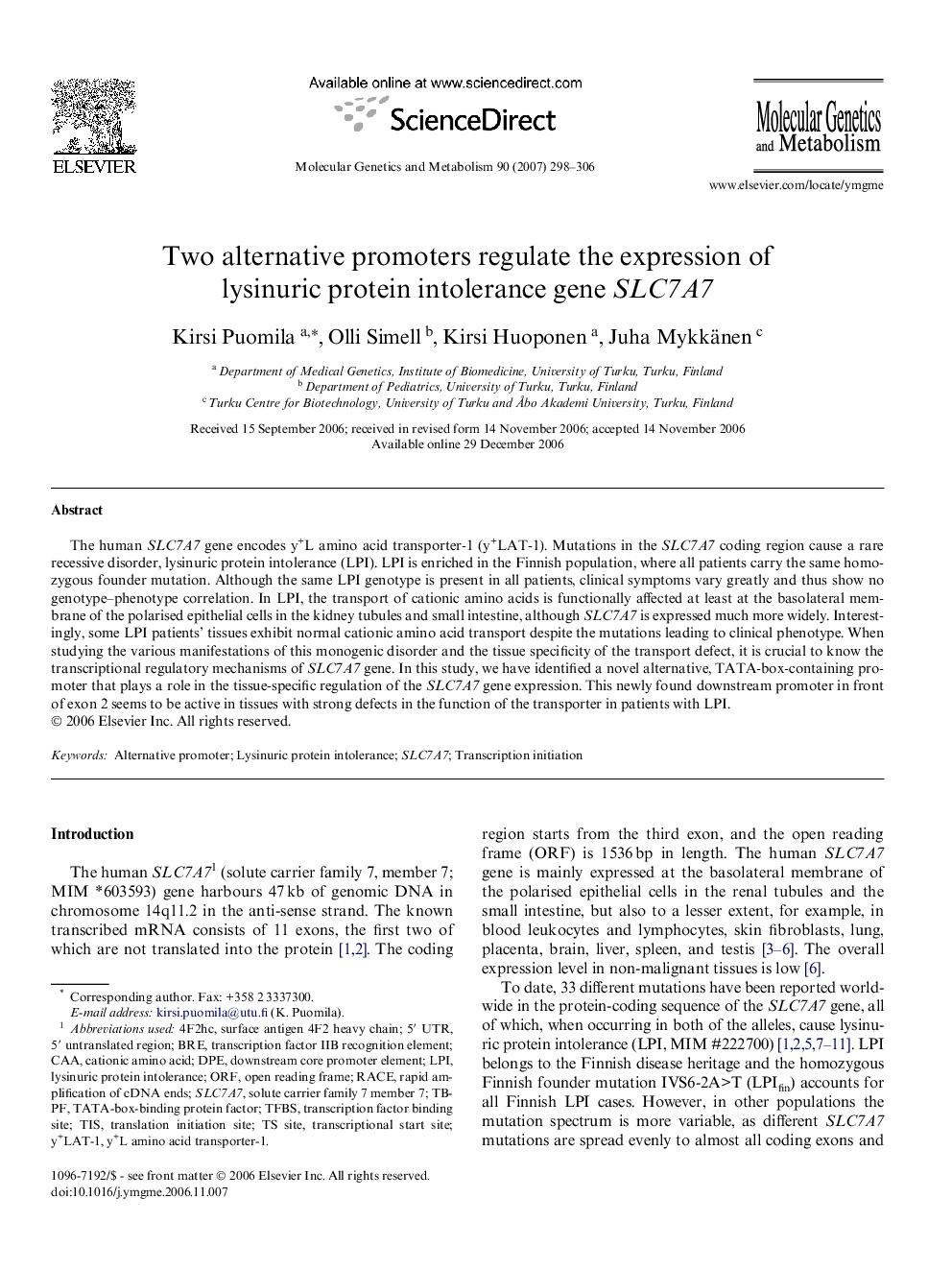| Article ID | Journal | Published Year | Pages | File Type |
|---|---|---|---|---|
| 1998967 | Molecular Genetics and Metabolism | 2007 | 9 Pages |
Abstract
The human SLC7A7 gene encodes y+L amino acid transporter-1 (y+LAT-1). Mutations in the SLC7A7 coding region cause a rare recessive disorder, lysinuric protein intolerance (LPI). LPI is enriched in the Finnish population, where all patients carry the same homozygous founder mutation. Although the same LPI genotype is present in all patients, clinical symptoms vary greatly and thus show no genotype-phenotype correlation. In LPI, the transport of cationic amino acids is functionally affected at least at the basolateral membrane of the polarised epithelial cells in the kidney tubules and small intestine, although SLC7A7 is expressed much more widely. Interestingly, some LPI patients' tissues exhibit normal cationic amino acid transport despite the mutations leading to clinical phenotype. When studying the various manifestations of this monogenic disorder and the tissue specificity of the transport defect, it is crucial to know the transcriptional regulatory mechanisms of SLC7A7 gene. In this study, we have identified a novel alternative, TATA-box-containing promoter that plays a role in the tissue-specific regulation of the SLC7A7 gene expression. This newly found downstream promoter in front of exon 2 seems to be active in tissues with strong defects in the function of the transporter in patients with LPI.
Related Topics
Life Sciences
Biochemistry, Genetics and Molecular Biology
Biochemistry
Authors
Kirsi Puomila, Olli Simell, Kirsi Huoponen, Juha Mykkänen,
